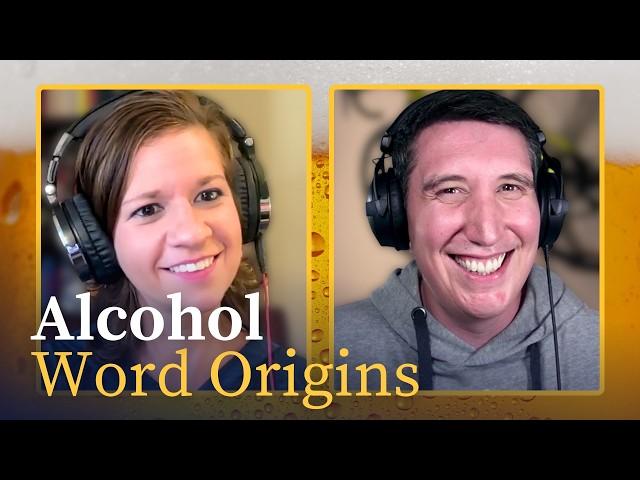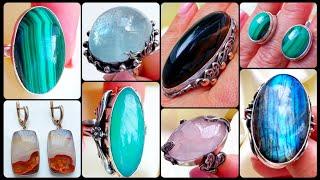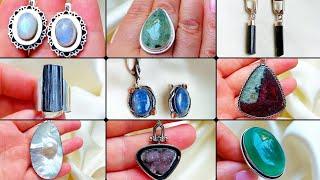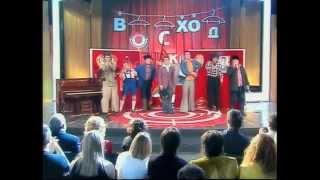
Which cocktail means "moist little thing"? | BOOZY WORDS
Комментарии:

i love these podcasts but feel it is time that Rob acknowledged that the UK ha four countries, with at least four native languages.. He does sometimes refer to Britain, which annoys the Irish. It's time to mention, perhaps,the richness that the Scots, Irish and Welsh, not forgetting Cornish and Manx languages have added to English. I don't know about the other three main Celtic langueges, but Scots Gaelic has fewer characters, lacking most of the hard consonants, makiing its pronunciation very soft.
Ответить
so on All Hallow's Eve, the night of spirits, Jess becomes a bit freer with them?
Ответить
Maybe someone remembers this better than I, but I heard the difference in ale and beer, is beer the ingredients sink and ale they float! I would have said that a cotton gin was a machine to separate cotton seeds from cotton fibers.
Ответить
Bloody Mary with dillpickle instead of the celery stick is awesome.
Ответить
A cotton gin doesn't harvest the cotton; it separates the fibers from the seeds, which had been a very slow and expensive process done with human fingers. :-)
Ответить
Fun fact: the element meaning 'life' in whisky/water of life/uisge beatha is also present in the surname MacBheatha, which is anglicized to MacBeth, literally 'son of life'.
Ответить
I am a fan of H.L. Mencken. He was a sort of professional curmudgeon, who supplied the vocabulary for many of the young Turks of the 1920's to display their ennui and cynicism. He's rather like P.J. O'Rourke, but more erudite. Mencken wrote some great stuff back in the day. His dispatches from the Scopes "Monkey Trial" are especially good (in my opinion). He wrote a book called "The American Language" which was highly regarded.
Ответить
As much as I've enjoyed RobWords for years now, I enjoy this back-and-forth. I like the way you approach the subjects separately and combine your research to enlighten each other as much as the audience. Good job.
Ответить
Funny about Jess's comment about "daring" to use the word "Orient." I've talked with many Asian people (and my wife is Chinese). Not a single one of them has a problem with the word Oriental. All the supposed outrage against the word seems to come from non-Asians getting offended on their behalf. lol
Ответить
I thought the Bloody Mary was named after Mary Queen of Scots because she was beheaded. I can't remember what source I would have heard that from after so many years though.
Ответить
Buck's Club
The drink is named after London's Buck's Club, where it is said to have first been served in 1921 by a barman named Malachi "Pat" McGarry (who features in the works of P. G. Wodehouse as the barman of Buck's Club and the Drones Club). Traditionally, it is made by mixing two parts champagne and one part orange juice. - wikipedia

Some corrections: Russian пиво-pivo (beer, literally a drink) is a noun from the verb пить-pit’ =to drink. I think it is of same origin as Latin potus, potio, not bibere.
I am sure that beer came from brew, as there is a direct counterpart for this in Russian: брага=fermented wort. It meant a fermented alcoholic drink earlier, now it is mostly applied to wort which you distill alcohol (and moonshine) from. To ferment is бродить (brodit’), fermentation is брожение (brozhenie), and an old and poetic form of to drink is бражничать (brazhnichat’). The old form of брага (braga) was бърага (beraga) - does it remind you of anything, huh?
And guys, please behave more naturally, your laughter offer seems artificial and labored.

ROB & JESS! I’m a little late getting to this episode but when I heard you mention “öl” being beer in Old Norse I immediately thought of the Irish verb, “ól”, meaning to drink. Possibly a Viking connection there? Anyhow, great episode!
Ответить
When I visited distilleries in France, "eau de vie" was what they called their Cognac fresh off of the still before aging.
The Bond film you are thinking of was "Moonraker", not "Moonshine 😀.
My ex wife is Chinese. The Chinese word for alcohol (酒)is pronounced more like "joe" by Mandarin speakers. The Japanese call the portion of their character set borrowed from the Chinese "Kanji", pronounced by the Chinese as "Han-zi" (汉字). The pronunciation has drifted between them, but the meanings haven't, so with my half vast vocabulary I can read some Japanese signage.
Mao Zi Dong thought it would be good to simplify the Chinese character set for the lower classes, so the portion of the Chinese part of the world that was under his control uses his simplified characters, while Hong Kong and Taiwan use the traditional version. My ex being mainland Chinese, I have mostly learned the simplified set. Confused yet?

The overtly American pronunciation of Worcestershire sauce actually jump scared me
Ответить
Buck, in Georgette Heyer's Regency England novels, was another term for a dandy. So that is the buck in buck's fizz. Just send your thanks to Liz (and Ginger: pic left) in Australia.
Ответить
"My hawk has mites" sounds like a euphemism.
Awesome episode! I enjoyed it immensely.

The "coque" in coquetier actually means shell (eggshell). Oeuf à la coque is a boiled egg, which you eat in an egg cup
Ответить
I vote Jess as a US National treasure AND I hope the UK votes For Rob accordingly
Ответить
“Crispy Mary” - EW! You two are having too much fun. ……………( Keep it up )
Ответить
My Dad used a term that I never heard anyone else use. "Hoofing it," when he had to walk somewhere.
I think it was an old term or even an Irish term.
My father was born in 1923, but his mother was born around 1890.

I'm kind of surprised that poteen didn't come up
Ответить
Wet your whisker
Ответить
you missed arrack / arrak!
Ответить
the word “dram” is actually still used in pharmacies (at least in the US). it refers to the different sizes of amber vials that we put medications in. most commonly we use a “10 dram” bottle, but there are varying sizes all the way up to “60 dram.” pretty cool to see it used in this situation!
Ответить
Pretty baby! ❤
Ответить
New England has some similar slang to Britain. Wicked, Pissed, Mint...
Ответить
its Kahlua not Khalua.
Ответить
LOL as usual :-) I love these videos! Cool facts and loads of information all rolled into one Tankard of entertainment ! ( Or should I say cask!? ) Great stuff guys ! ...But you forgot to mention Mead ! This drink brewed by the Vikings 1000 years ago here in Sweden and called nowadays : Mjöd ) I do believe this word has remained more or less unchanged from the old Norse/ Icelandic Viking language. ( The Ö is an er sound as Rob well knows ! ) Keep em coming.
Ответить
It's hardly surprising that a unit of liquid volume, would be based on an earlier unit of weight. The most famous case is of course the ounce, both versions of which are still in widespread usage in America today (whereas, the dram has been pretty much entirely replaced by metric units). Generally speaking, the relationship between the weight unit and the volume is fixed on one specific important liquid (in the case of the ounce, water; in the case of the dram, said important liquid may have originally been spirits, though it's hard to pin down, because units were so imprecise back then).
Ответить
Actually the margarita is named after the daisy, the earlier gin and lemon drink that the margarita is a tequila version of. Mexican ingredients, therefore the Spanish for the daisy flower, which is margarita.
Ответить
Voda is water in almost all Slavic languages not just Russian 😊
Ответить
I grew up hearing "three sheets to the wind" for drunkenness.
Ответить
Pronouncing coquetier with a Parisian accent is actually quite close to how cocktail is pronounced. I had never heard of this explanation but it makes sense.
For an English speaker it might sound a bit like cocktiay
The Parisian pronunciation often gets rid of E in the middle of the words:
Petit -> p'tit
Devant -> d'vant
Coquetier -> coqu'tier
(I was born in Paris and have lived there for the first 30 years of my life)

Rather delightfully there is a red wine from the Bouzy region in Champaign
Ответить
"Liquor" is any distilled spirit, roughly, whereas a "liqueur" has some additional agent (generally a sweetener) added at some point in the process, either before or after distillation. Vodka and whisk(e)y, then, would be liquor, while Bailey's and Kahlua would be liqueurs.
Of course, the more French-spelt "liqueur" seems to be the more watered-down version of "liquor." The originator of France's best-selling liqueur--Grand Marnier--purportedly put "Grand" in the name to contrast with the lighter, smaller-sounding drinks popular at the time...
Can I be sure that this bit of storytelling is 200-proof veracious? Not necessarily, but it makes a fine tale.

Jes, the cotton gin was for post harvest processing of cotton to remove seeds and other parts of the plant that may have been picked along with the cotton boll.
Jes, I would like to recommend "The Sahara of the Bozart" by H.L. Mencken It is credited with the almost single-handed revival of the fine arts in the post-reconstruction southern United States.

I don’t know if these two are romantically involved, but I feel they’d be perfect for one another.
Ответить
Every kid in America is taught that Eli Whitney invented the cotton gin. I don't actually know if that's true or an article of faith. One of my favorite expressions for being drunk is the nautical "three sheets to the wind." A sheet is a rope that controls a sail. If three of them are loose and flopping, the ship is careening out of control. Now, a chorus of "What do we do with a drunken sailor?"
Ответить
wormwood in Ukrainian is chernobyl.
Ответить
Maggotted…
Ответить
I will just say that the reason Japanese normally doesn't end words with consonants doesn't have to do with the writing system. Rather, Hiragana and Katana are syllabaries because that happens to function well with the phonotactics of the Japanese language which generally doesn't allow for closed syllables except when the coda is a nasal. *However*, even that isn't entirely true anymore as the closed vowels /i/ and /ɯ/ are realized as voiceless vowels or dropped completely when between two voiceless consonants or when word-final after a voiceless consonant.
This apprehension to consonants and clusters isn't all that uncommon cross-linguistically either. In fact, it seems more like the Indo-European languages are outliers here by allowing rather complex clusters both as onset and coda.

I would love it if you two could each set up identical studios to film these at then cut the video to look like you are in the same room.
Ответить
As a Kiwi, the best word for drunk is "munted"
Ответить
My relatives in the North Carolina Appalachians said "drunk as Cooter Brown" just ALL the damn time. I was going to say this shows the phrase still in use, 'til I realized that was 50 years ago.
Now I just feel old.
Also, I'm a bit disappointed we didn't hear some different phrases used in the bar environment; I've always been fascinated by the Brits' "last orders, please", as well as the phrase "early doors".

A friend of mine and I were just discussing our experiences on Guam. I told him about tuba, which is fermented coconut palm juice. It was set out at village fiestas in plastic, gallon milk jugs when I was there in the mid-1980s. I am not sure whether the name is introduced from a Polynesian, Micronesian, or Melanesian source, or if it derives from Chamorro.
Absinthe makes the tart seem blonder.

PS. My favourite expression for drunk?
"Nished as a pewt". Lol

I’m guessing here but there probably was a volumetric measure for a dram of gunpowder. I’m sure soldiers used this measure to hold their rum ration:)
Ответить

























